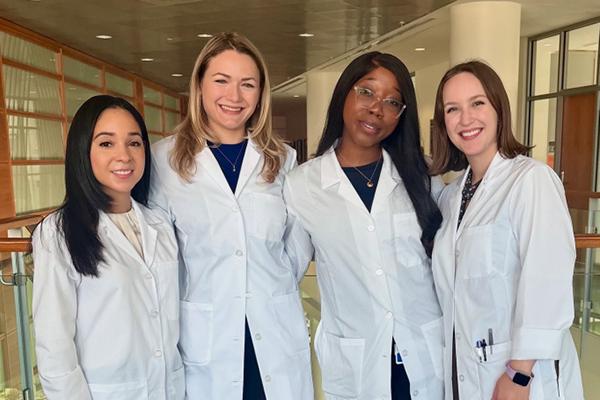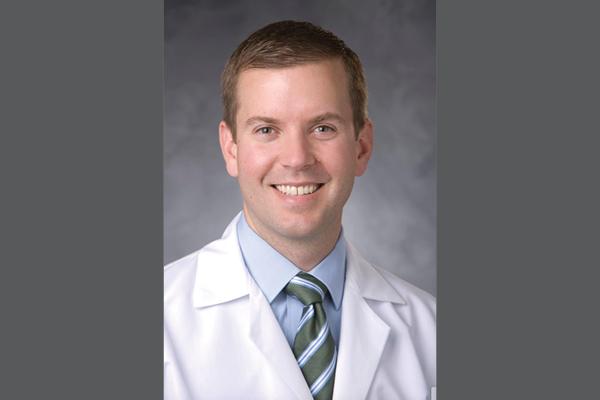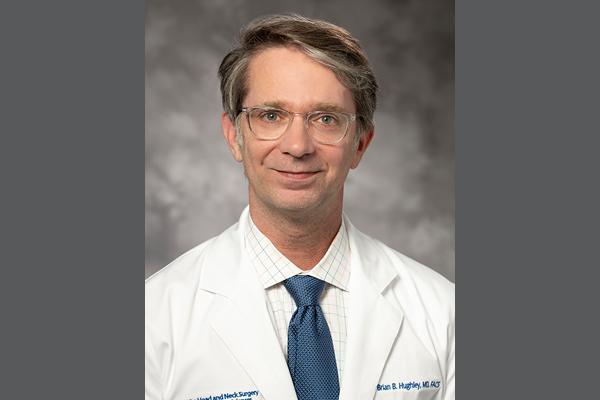Jessica West Appointed to North Carolina Council for the Deaf and Hard of Hearing
Jessica West, PhD, MPH, joins the NC Council for the Deaf and Hard of Hearing to help guide state services, bringing expertise in hearing loss, stigma, and public health from Duke University.
PGY1 & PGY2 Residents from Duke and Across the Southeast Attend 2025 Duke Otolaryngology Emergency Skills Course
The 2025 Duke Otolaryngology Emergency Skills Simulation Course welcomed PGY1 and PGY2 residents from Duke University and other academic institutions across the Southeast.
Everyday Health: How to Manage Speech Problems Linked to MS
MS can affect speech, but help is available. Speech therapy, tech tools & lifestyle changes can improve clarity & confidence. Featuring expert insights from Dr. Nidhi Mahendra Gupta. Click link to read more.
Introducing Our 2025 PGY-1 Otolaryngology Residents
We’re excited to welcome our PGY-1 residents! Joining the 5-Year Track: Audrey Abend (Rutgers), Katherine Gonzalez (CUSM), Nina Stephen (UTSW). On the 7-Year Track: Madison Hearn (Penn State). Welcome aboard!
Announcing Dr. Charles Woodard as Inaugural Vice Chair for Education
Dr. Woodard has been named the inaugural Vice Chair for Education in Head and Neck Surgery & Communication Sciences, leading UME, GME, CME, and faculty development across the department.
Otolaryngology Residency Program Leadership Update
Dr. Hughley has been named Associate Program Director, effective 8/1/25. Thank you to Dr. Kahmke for his service as Associate Program Director—his leadership has been instrumental in our program’s growth.
ASPO Webinar Recap: Using Data to Drive Change in Pediatric Otolaryngology
Dr. Jeffrey Cheng led a webinar on using data to improve pediatric care, joined by experts from top children’s hospitals. Topics included AI tools, national data, RCA, and change management—valuable for all experience levels.
Experience, Expertise Critical for Superior Canal Dehiscence Syndrome Relief
SSCD affects 1–2% of people, but few develop SCDS symptoms. At Duke Health, Dr. Eric J. Formeister leads expert diagnosis and care for SCDS, which causes vertigo, autophony, and more—often overlapping with vestibular migraine, complicating diagnosis.
Dr. Kahmke’s New Designation Highlights Specialized Care for Complex Endocrine Cases
In June 2025, Russel R. Kahmke achieved a major milestone by passing the ABOHNS Adult Complex Thyroid/Parathyroid Surgery Focused Practice Designation exam, advancing his expertise in head and neck surgery.
Duke HNS&CS Showcases Project CHECKERS at CERI’s “Examples from the Field” Session
Duke HNS&CS’s Project CHECKERS was featured in CERI’s “Examples from the Field,” highlighting its innovative mixed-methods approach to community-engaged HNC screening and its partnership with North Raleigh International Baptist Church.









